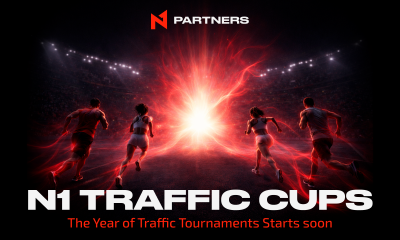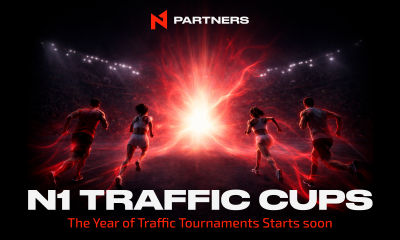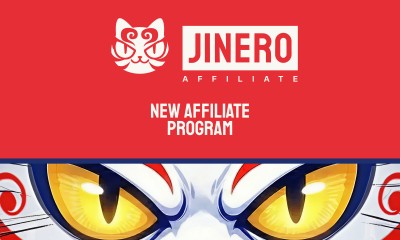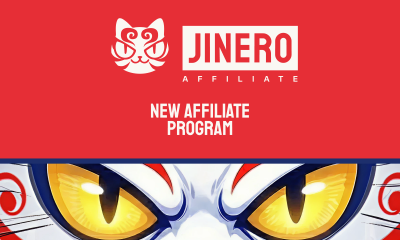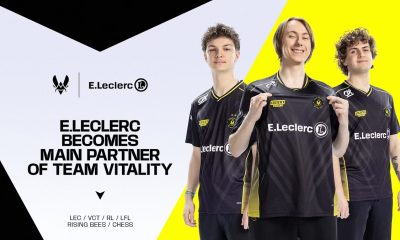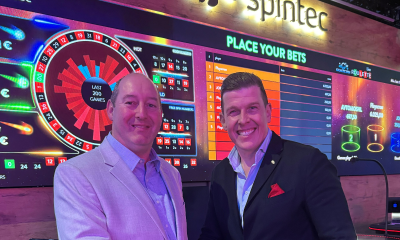Chad Kinlay Chief Marketing Officer TrafficGuard
Influencers, Content and eSports: Unleashing the Power of Dynamic Strategies in the eSports Ecosystem
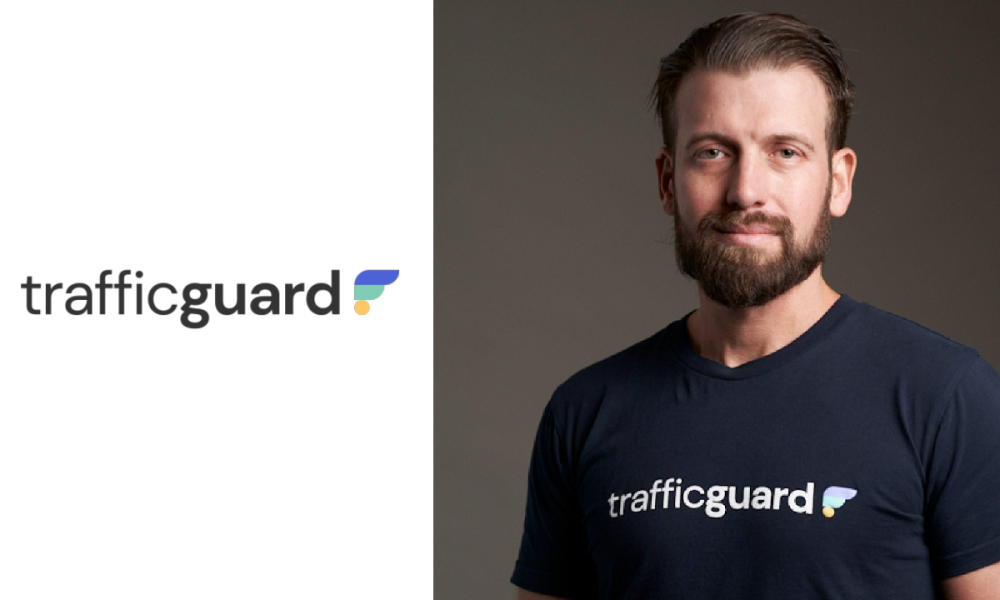
The sports betting industry is undergoing significant growth worldwide with restrictions loosening and new markets emerging. New opportunities create fierce competition among sportsbooks, and this has led to them devising increasingly expensive and aggressive advertising campaigns.
Public figures and influencers have become a popular go-to for sportsbooks promotions, such as Michael Jordan partnering with DraftKings or Jamie Foxx with BetMGM. Big names are costly, and sportsbooks haven’t realised the ad spend used on these campaigns is going to waste. Without the right precautions in place, up to 22% of ad spend is lost to fraud according to Juniper Research.
The big budgets behind high-profile brand campaigns need to translate into real user engagement. To achieve this, sportsbooks must ensure their digital channels are optimised to capture the surge in interest these campaigns generate. Without proper management, this potential can be lost to inefficiencies like invalid traffic, diluting the impact of their investments.
Ad Budgets Going to Waste
In today’s competitive landscape, sportsbooks need to make every click count. In 2023 alone, The American Gaming Association estimated that over $1.9 billion was spent on advertising campaigns in the US. With such a large amount of spend in play, it’s crucial that sportsbooks see as big a Return on Advertising Spend (ROAS) as possible.
Pay-Per-Click (PPC) campaigns are vital for sportsbook growth but can be disrupted by invalid traffic (IVT). IVT includes both malicious activity, like fraudulent bots, and unintentional actions, such as users repeatedly clicking on ads without intent to convert. These interactions inflate impressions and skew campaign performance data, leading to higher customer acquisition costs (CACs) and inefficient allocation of ad spend. Effectively managing IVT ensures that ad budgets drive genuine engagement and measurable growth.
Investing into influencers and celebrities also forces sportsbooks to bid on brand keywords to prevent their competitors stealing potential users searching for them. Up to 29% of PPC budgets are spent on this bidding according to Wordstream. As competition for brand keywords increases, PPC budgets are depleted without generating any new net revenue.
As campaigns become more expensive than ever, sportsbooks can’t afford to let profits fall to ad fraud. Instead of cutting budgets, sportsbooks should focus on analysing their campaign strategy.
Problematic Navigational Traffic
Navigational traffic is also presenting a significant challenge to sportsbooks alongside ad fraud. Navigational traffic refers to existing customers clicking on branded keywords to log into their accounts. While this seems convenient and harmless enough, this behaviour drastically inflates CACs. Like ad fraud, this can skew the effectiveness of PPC campaigns. By utilising paid search results instead of organic links to navigate to the site, costs are driven up without contributing to new user acquisition.
In addition to the challenges posed by navigational traffic and ad fraud, the competitive landscape for first-time depositors intensifies the need for strategic bidding on Google search. Brands investing heavily in influencers or sponsorships of major sporting events to generate awareness and drive potential users to search for them. However, without securing top placements in paid search results, these prospective customers may be intercepted by competitors before reaching the organic search listings. This creates a critical juncture where the effectiveness of a brand campaign hinges on converting that intent-driven traffic into first-time depositors, ensuring marketing spend achieves its goal of meaningful user acquisition.
First-time depositors are a critical metric for sportsbooks, and this issue directly impacts the cost efficiency of acquiring them. High CACs make marketing budgets less effective, reducing overall ROI.
Shoring Up Your Defences
Before launching costly ad campaigns, sportsbooks should adopt a multi-faceted approach to address ad fraud. IVT typically goes unnoticed, so to prevent this sportsbooks should monitor and analyse their campaign traffic for any suspicious activity. It is possible to identify IVT by looking out for signs such as irregular spikes in traffic from unknown locations or high pageviews. Fraudulent traffic can then by highlighted and removed.
The advancement of technology has made ad fraud more difficult to identify, and legacy fraud tools fail to detect IVT. They don’t analyse traffic at the impression level or consider the context of the business advertising. Sportsbooks can leverage ad-verification platforms to compensate for this. This allows sportsbooks to analyse and report suspicious traffic in real-time. Fraud can then be blocked before it has a chance to harm budgets.
Sportsbooks can also deploy tactics to reduce the impact of navigational traffic on CACs. Methods include encouraging existing customers to use mobile apps or direct bookmarks to log into their accounts instead of paid search campaigns. This decreases their reliance on PPC campaigns for navigation and protects budgets.
Keeping Profits in Sportsbooks’ Hands
Influencer and celebrity campaigns have proven to be a popular and useful tool in reeling new users and profits. However, if sportsbooks don’t have the essential precautions in place, they risk losing these profits to advertising fraud.
To make the most of their advertising efforts, sportsbooks need to prioritise their traffic. Implementing sophisticated tools to analyse traffic and filter out fraud will allow sportsbooks to protect their interests and focus on driving future growth. This way, they can secure their position in an increasingly competitive landscape.
Written by: Chad Kinlay, Chief Marketing Officer, TrafficGuard
A driven, open-minded, creative senior marketer with a strong sense of dedication and commitment. With over 15 years of progressive international experience in marketing and communications management, Kinlay has a credible history of commercial success.
-

 Amusnet6 days ago
Amusnet6 days agoWeek 7/2026 slot games releases
-

 Aphrodite’s Kiss6 days ago
Aphrodite’s Kiss6 days agoLove on the Reels: Slotland Introduces “Aphrodite’s Kiss”
-

 Brino Games6 days ago
Brino Games6 days agoQTech Games integrates more creative content from Brino Games
-

 Baltics7 days ago
Baltics7 days agoEstonia to Reinstate 5.5% Online Gambling Tax From March 1
-

 Denmark7 days ago
Denmark7 days agoRoyalCasino Partners with ScatterKings for Company’s Danish Launch
-

 Booming Games7 days ago
Booming Games7 days agoTreasure Hunt Revival — Booming Games Launches Gold Gold Gold Hold and Win
-

 Bet Rite7 days ago
Bet Rite7 days agoSpintec Expands into Canada with Bet Rite
-

 ELA Games7 days ago
ELA Games7 days agoELA Games Unveils Tea Party of Fortune — A Magical Multiplier Experience



